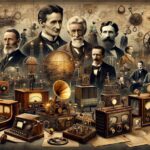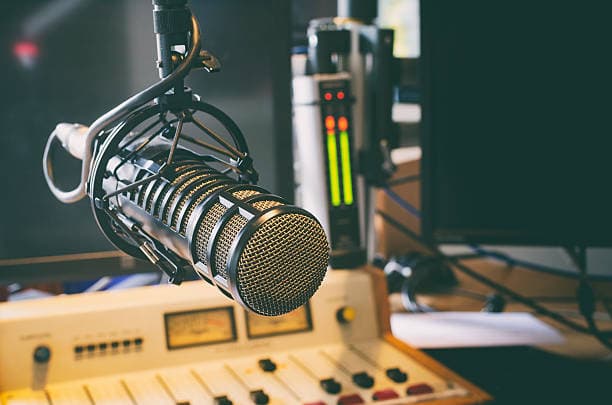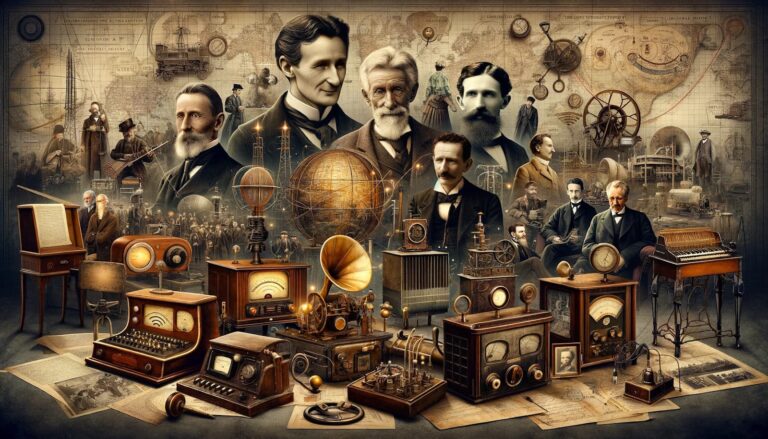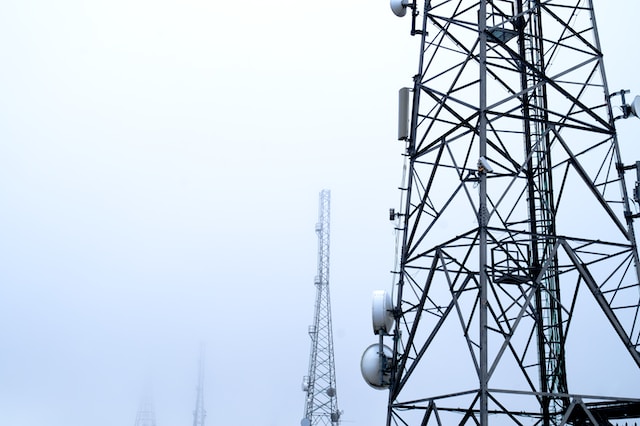Radio is not only a way to listen to music or news. This is an entire era that has left its mark on the history of mankind. Dive into the wonderful world of radio waves with these ten facts that may change the way you think about your device.
1. Start of radio
The birth of radio marks a pivotal moment in the history of technology when, in the late 19th century, Guglielmo Marconi, an Italian inventor and engineer, made a breakthrough by successfully transmitting a radio signal over a distance of more than two kilometers. This experiment not only broke new ground in communications, but also laid the foundation for the future development of wireless communications, making it possible to instantly exchange information over long distances without the use of wires or physical connections.
2. First radio show
On Christmas Eve 1906, a significant event in the history of radio broadcasting occurred when Reginald Fessenden, a Canadian inventor and radio pioneer, broadcast the world’s first radio show. He used his developments in radio communications to establish a signal that could be received by ships and coastal stations in the Atlantic Ocean. On this historic night, Fessenden performed several pieces of music live on the violin, including the Christmas hymn “O Holy Night,” and also read passages from the Bible, conveying warm greetings for Christmas to his audience. This event not only demonstrated the potential of radio as a mass medium, but also for the first time connected people over long distances through the magic of radio waves, giving them the feeling of participating in a common celebration despite their physical distance from each other.
3. Radio in space
Voyager 1, launched in 1977, embodies the greatness of human endeavor and technological achievement while remaining the furthest “radio” from Earth. Traveling more than 14 billion miles from our planet, the spacecraft continues to receive signals through NASA’s Deep Space Network, demonstrating the remarkable durability and reliability of radio communications. With every signal transmitted and received, Voyager 1 highlights how far the human voice can reach, literally transcending the boundaries of our solar system and entering interstellar space.
4. Radio and the law
In various parts of the world, radio broadcasting is subject to strict regulation to ensure that it operates in an orderly manner and respects the public interest. In the United States, this role is performed by the Federal Communications Commission (FCC), which is responsible for a wide range of tasks, including licensing radio stations and overseeing the content of their broadcasts. The FCC strives to ensure that radio broadcasts comply not only with technical standards, but also with ethical standards, preventing the dissemination of material that may be deemed harmful or inappropriate. This approach maintains a balance between freedom of speech and the need to protect public order and morals, making radio not only a source of entertainment and information, but also an important element of the social fabric.
6. Radio and music hits
Radio has had an immeasurable impact on the music industry, serving as a catalyst for the spread and popularization of a range of music genres. This was especially noticeable in the case of rock and roll, jazz and hip-hop, where the radio waves served as a bridge connecting innovative musical movements to a wider audience. Through radio, many future stars brought their hits to the public’s ears for the first time, gaining popularity and recognition. Radio stations, in an effort to satisfy the tastes of their listeners, actively promoted new tracks and artists, often becoming a springboard for their careers. Thus, radio not only shaped the musical preferences of generations, but also contributed to the development of musical art, opening new horizons for creativity and experimentation.
7. Emergency Radio
In critical situations, when other means of communication may not be available, radio acts as a vital channel for transmitting information. During natural disasters and emergency events, radios become the primary source of warnings, safety instructions, and assistance information for the public. With its ability to reach a wide audience, including remote areas, radio remains an indispensable tool in ensuring public safety and providing timely support to people in emergency situations.
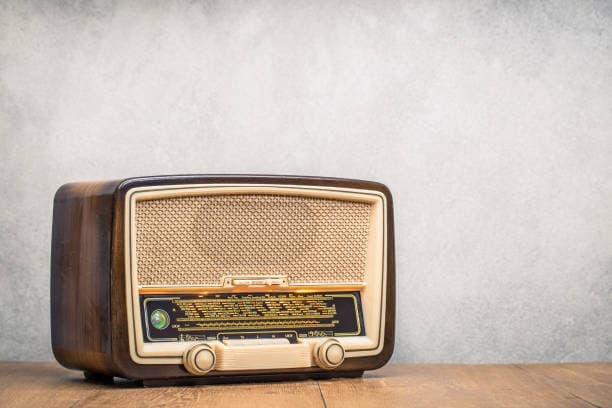
8. Radio amateurs
The amateur radio community unites millions of enthusiasts around the world for whom radio has become not just a hobby, but a passion and sometimes even a mission. These enthusiastic individuals explore the possibilities of radio waves, using them to communicate over vast distances, often crossing the borders of countries and continents. Moreover, radio amateurs contribute to scientific research by participating in radio frequency experiments, as well as space weather monitoring and ionospheric research projects. Their work also has practical applications: in emergency situations, when conventional means of communication are unavailable, amateur radio operators often become indispensable in coordinating rescue operations and providing communication between victims and emergency services, saving lives and providing support to those in trouble.
9. Radio and education
Radio serves as a powerful educational tool, reaching the most remote and inaccessible corners of the planet where traditional education may not be available due to geographic, social or economic barriers. This medium of knowledge plays a key role in providing educational opportunities for all, offering programs that cover a wide range of topics from basic education to specialized scientific and cultural knowledge. In many countries, radio is used to conduct distance lessons, educate adults, and disseminate information about health care, agriculture, and other areas important to life. Thus, radio becomes a window to the world for those who have limited access to educational resources, overcoming barriers and creating equal opportunities for learning and self-development of people, regardless of their location.
10. Digital radio
In the era of digitalization, radio is experiencing a new stage of its development, adapting to modern technological trends. Digital radio and internet broadcasting have greatly expanded the capabilities of radio stations and improved the experience of their audiences. Listeners can now enjoy high-quality audio, free of the noise and distortion typical of analogue broadcasts, and access a huge variety of stations from around the world, choosing the content of their choice without geographical restrictions. It also opens up new opportunities for radio stations to experiment with formats and programming content, allowing them to interact more closely with audiences through social networks and online platforms. Thus, digitalization of radio not only keeps it relevant in a rapidly changing world, but also provides listeners with a better and more diverse experience, making radio an even more important and interesting source of information, education and entertainment.



